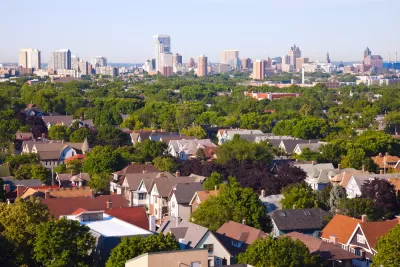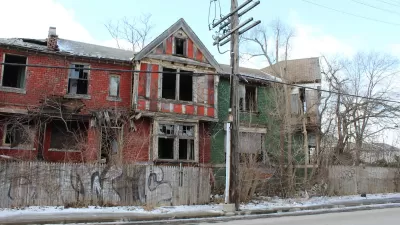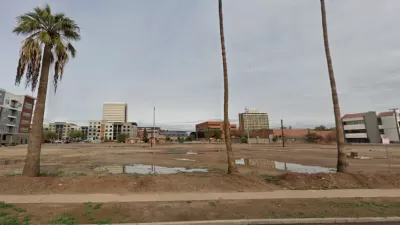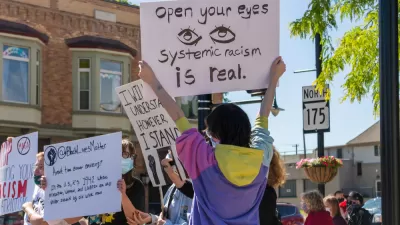A record 66 developers applied to refurbish 150 vacant, city-owned homes.

“Milwaukee’s $15 million proposal to renovate 150 vacant, city-owned homes is moving forward,” reports Jeramey Jannene in Urban Milwaukee. “The city will sell the houses for as little as $1, provide a development subsidy estimated at $75,000 based on the renovation cost estimates and grant a $5,000 workforce subsidy. After renovation, the properties may be sold to owner-occupants, rented out or placed into a rent-to-own program.”
The city selected 14 non-profit and for-profit operators from a record 66 applicants that responded to its Request for Proposals (RFP) to rehabilitate the homes. “The program is designed to create affordable housing, expand the city’s tax base and create jobs.” The plan was scaled down from a proposal to rehab all 700 city-owned homes. According to the article, “The program is focused on vacant houses. Tenants in a house at the time of foreclosure are allowed to continue living there with DCD assuming the role of landlord.”
The program prevents developers from ‘flipping’ properties to another owner (except an owner-occupant). “A deed restriction will require a sold property to be owner-occupied for five years and owners would be required to complete eight hours of home-buyer counseling through either Acts Housing, Housing Resources, Inc. or the United Community Center.”
FULL STORY: 66 Developers Bid To Rehab City’s Vacant Homes

Planetizen Federal Action Tracker
A weekly monitor of how Trump’s orders and actions are impacting planners and planning in America.

Maui's Vacation Rental Debate Turns Ugly
Verbal attacks, misinformation campaigns and fistfights plague a high-stakes debate to convert thousands of vacation rentals into long-term housing.

Restaurant Patios Were a Pandemic Win — Why Were They so Hard to Keep?
Social distancing requirements and changes in travel patterns prompted cities to pilot new uses for street and sidewalk space. Then it got complicated.

In California Battle of Housing vs. Environment, Housing Just Won
A new state law significantly limits the power of CEQA, an environmental review law that served as a powerful tool for blocking new development.

Boulder Eliminates Parking Minimums Citywide
Officials estimate the cost of building a single underground parking space at up to $100,000.

Orange County, Florida Adopts Largest US “Sprawl Repair” Code
The ‘Orange Code’ seeks to rectify decades of sprawl-inducing, car-oriented development.
Urban Design for Planners 1: Software Tools
This six-course series explores essential urban design concepts using open source software and equips planners with the tools they need to participate fully in the urban design process.
Planning for Universal Design
Learn the tools for implementing Universal Design in planning regulations.
Heyer Gruel & Associates PA
JM Goldson LLC
Custer County Colorado
City of Camden Redevelopment Agency
City of Astoria
Transportation Research & Education Center (TREC) at Portland State University
Jefferson Parish Government
Camden Redevelopment Agency
City of Claremont





























